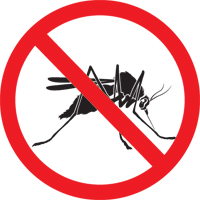Feature Story
Health Center Today, August 9, 2011
West Nile Virus More Widespread Than Last Year – Tips on How to Protect Yourself
By Carolyn Pennington

With West Nile virus being detected in mosquitoes across Connecticut, health experts are warning residents to use precautions when spending time outdoors.
The virus is more widespread than it was last year at this time with infected mosquitoes from Greenwich to New Britain. While no human cases have been reported at this time, peak activity is yet to come. There were 11 cases in all by the end of the season last year.
“Those most susceptible are the elderly, the very young and those with impaired immune systems,” says Dr. Paul Skolnik, chairman of the Department of Medicine at the UConn Health Center and internationally known infectious disease specialist.
Symptoms include:
- Fever
- Headache, body aches
- Fatigue
- Lack of appetite
- Sore throat
- Vomiting
Most people who have the mild form of West Nile virus have a fever for five days, a headache for 10 days, and feel tired for more than a month.
With more severe disease, you can also experience the following symptoms and need prompt attention:
- Confusion or change in ability to think clearly
- Loss of consciousness
- Muscle weakness
- Stiff neck
“Although some infected with the virus may experience mild or no symptoms, serious and even fatal disease can occur,” adds Skolnik.
Ways to Reduce Your Chances of Being Bitten
- While outdoors, cover exposed skin with clothing or insect repellent with either DEET or picaridin as its active ingredient.
- Eliminate standing water, such as in bird baths, to reduce places where mosquitoes breed.
- Stay indoors between dusk and dawn, when mosquitoes frequently are most active.
- Repair or replace window screens and screen doors.


